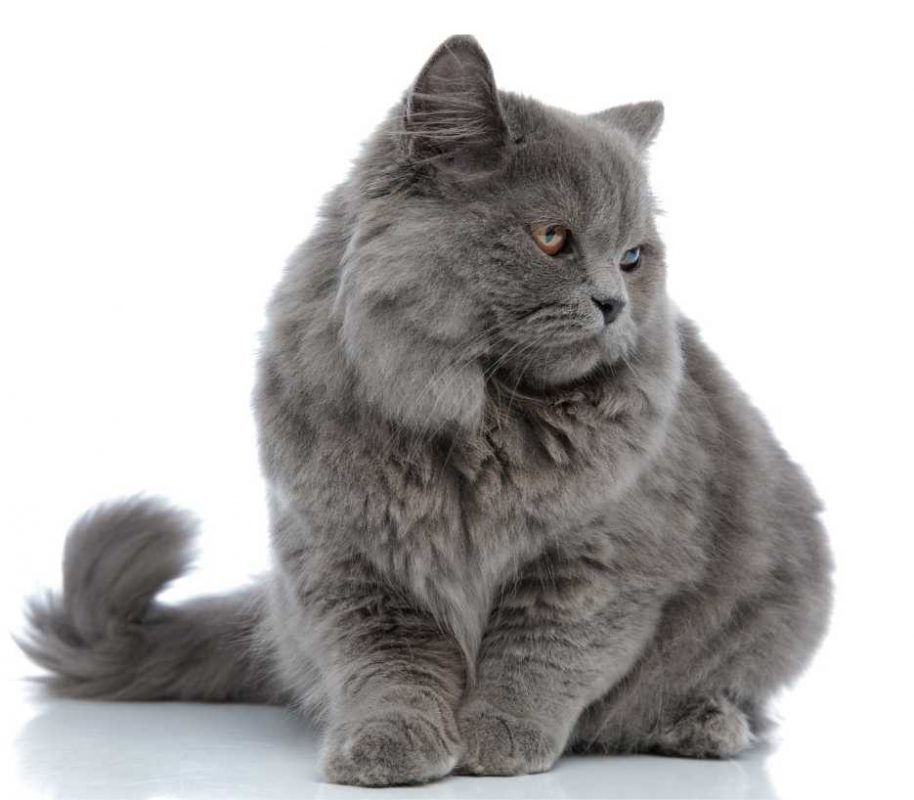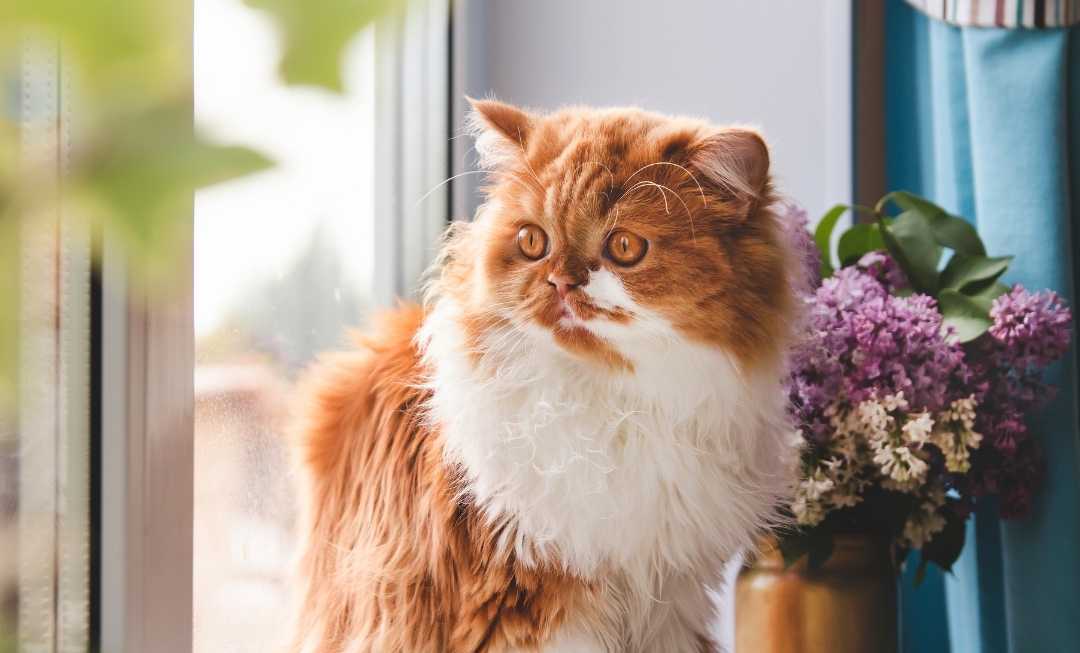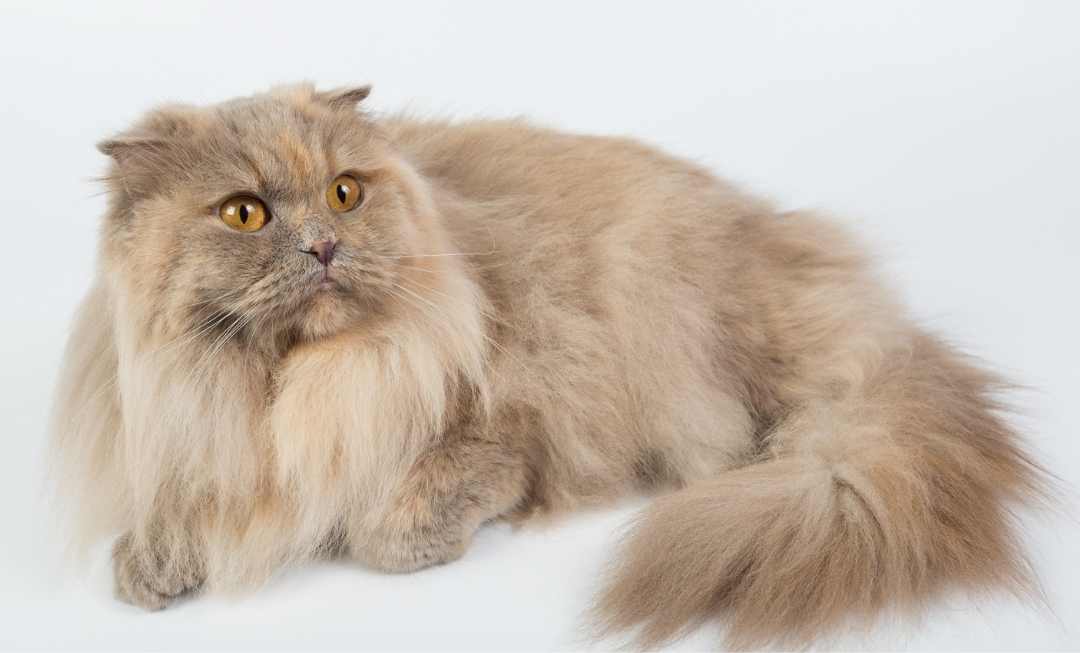
British Longhair cats are the epitome of loyalty and devotion, with their laid-back, sweet-tempered nature. Sporting round faces and fluffy coats, these felines have been around for centuries but have recently gained recognition from cat associations. Originating in Britain, they are a delightful mix of Persian and British Shorthair breeds.
Looking for a family-friendly cat or a devoted companion? The British Longhair is a perfect choice. They’re affectionate without being demanding, making them ideal for various lifestyles and living spaces. This gentle and cuddly cat will easily adapt to family life, frequent travels, and most home environments as long as they receive plenty of love and care.
British Longhairs share a deep connection with their namesake and ancestor, the British Shorthair. Early 20th-century Britain saw breeders crossing British Shorthairs with Persian cats. However, it was rare to find kittens exhibiting the Persian’s longhaired gene. Today, British Longhairs have their unique traits and are recognized as a distinct breed.
The Perfect Family Cat
British Longhairs are known for their mild, gentle demeanor and tolerant attitude. They’re not easily stressed and can often seem a bit lazy. While they occasionally display playful kitten behavior, they’re generally less energetic than other cat breeds and become more laid-back with age. They’re intelligent, social, and affectionate—great qualities for a family pet. These cats are curious “private investigators,” always ready to explore your belongings or observe your activities from a distance. Friendly and patient with children, British Longhairs prefer playing and petting sessions on the floor rather than being picked up. Their laid-back nature makes them adaptable to various living conditions, social gatherings, and bustling households.
An Independent Feline
Far from clingy, British Longhairs can comfortably spend time alone while you’re at work or social events. Their independence also brings a touch of stubbornness—they like to do things on their terms. They may not always respond when you initiate play. Despite this, they enjoy cuddles, attention, and the company of other pets so that they won’t feel lonely. These cats are vocal and communicate with you when hungry, thirsty, or seeking attention. If you live in an environment with thin walls or easily irritated roommates, this chatty breed might not fit you best.

British Longhairs are medium-sized cats with long hair and soft, round faces. Their big, round eyes and plush coats give them an adorable charm. Despite their fluff, they have muscular, strong bodies, typically weighing 8-16 pounds, with males usually being heavier. Their straight, thick coats stand away from the body, making them appear larger. Available in many colors, including lilac, chocolate, golden, or black, they also come in various patterns like ticked, bi-color, or colorpoint. Although they shed less than other longhaired breeds, they have a dense undercoat, a testament to their Persian heritage.

Grooming your British Longhair involves gently brushing them a couple of times a week with a bristle brush, working in small sections. They mostly bathe themselves, but occasional baths are beneficial. Their self-grooming can lead to hairballs, so regular brushing and hairball relief treatments are essential.
Encourage these slightly lazy cats to stay active by providing regular playtime, cat trees for climbing, and interactive toys. They’re intelligent and easy to train for simple tasks like using a scratching post or litter box. These food-loving felines appreciate treats as rewards for good behavior. Socializing them is straightforward, especially if they’re introduced to people and other pets at a young age.
Nutrition
Both wet and dry food are appropriate for British Longhairs, but ensure they are high quality. Since they are prone to obesity, controlling their food intake is crucial. This breed has an average lifespan of 15-17 years and isn’t more prone to illness than other breeds. Responsible breeders will have kittens examined for genetic health issues. Still, regular vet appointments and following your vet’s advice are vital for maintaining your cat’s health. Preventive care is fundamental to managing potential health issues that may arise later in life.
Unleash the secrets to feline happiness! From picking the purr-fect breed to mastering grooming techniques and choosing the healthiest foods, we’ve got you covered. Get top-notch advice from world-renowned veterinarians, cat behaviorists, and groomers.
🐾 Visit our blog and become the ultimate cat parent! 🐾
Felinopedia is an online cat encyclopedia dedicated to sharing valuable information with (new) cat parents. We aim to help you give your furry friend the best tools and advice for a long, happy, and healthy life.
Join us on this journey to ensure your cat’s wellbeing.
Happy Cats, Happy Life